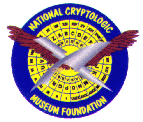
|
|
Tulane Engineering Forum |
||||||||||||||||||||||||||||||
|
Kenneth M. Ford
Kenneth Ford is Founder and Director of the Institute for Human & Machine Cognition (IHMC)
at the University of West Florida. IHMC has grown into a well-respected research institute
with over 70 researchers investigating a broad range of topics related to understanding cognition
in both humans and machines with a particular emphasis on building cognitive prostheses to
leverage and amplify human intellectual capacities. Dr. Ford, who has an interdisciplinary
interest in understanding cognition in both humans and other machines, is the author of over
a hundred scientific papers and five books. Dr. Ford's other interests include: artificial
intelligence, internet-based applications, computer-mediated learning, and entrepreneurship
in government and academia. He received a Ph.D. in Computer Science from Tulane University.
He is the Editor-in-Chief of AAAI/MIT Press, involved in the editing of several journals,
and is a Behavioral and Brain Sciences (BBS) Associate. Dr. Ford has received local and
national teaching awards. Dr. Ford is a Fellow of the American Association for Artificial
Intelligence. In 1997, he received the University Research and Creative Activities Award at
the University of West Florida.
In January 1997, Dr. Ford was asked by NASA to help transform it into an information technology
agency by developing and directing its new Center of Excellence in Information Technology in
at Ames Research Center in the heart of Silicon Valley. He accepted the mission, and having
done it, Dr. Ford has returned to private life. In July 1999, Dr. Ford was awarded the NASA
Outstanding Leadership Medal.
Presentation Topic:
Enabling the Future: Information Technology in Space Exploration
By Kenneth Ford
Summary
Humans are quintessentially explorers and makers of things. These traits, which identify
us as a species and account for our survival, are reflected with particular clarity in
the mission and methods of space exploration. The romance associated with the Apollo
project is being replaced with a different vision, one where we make tools to do our
exploring for us. We are building computational machines that will carry our curiosity
and intelligence with them as they extend the human exploration of the universe.
In order to succeed in places where humans could not possibly survive, these "remote
agents" must take something of us with them. They must be self-reliant, smart,
adaptable and curious. Our mechanical explorers cannot be merely passive observers
or puppets dancing on tenuous radio tethers from earth. They simply will not have
time to ask us what to do: the twin constraints of distance and light-speed would
render them helpless while waiting for our instructions, even if we knew what to
tell them. Intelligent machines will play a central role in space exploration because
there is, literally, no other way to make it work. Our bodies cannot fly in the tenuous
Martian atmosphere, endure Jupiter's gravity or the electromagnetic turbulence of
Saturn's rings; but our machines can, and we will send them there. Once at distant
worlds, however, they must deal with the details themselves. The only thing we can
do is to make them smart enough to cope with the tactics of survival.How clever will
these agents of human exploration need to be? Certainly, cleverer then we can currently
make them. It will not be enough to be situated and autonomous: they will need to be
intelligent and inquisitive and thoughtful and quick. NASA is committed to integrating
intelligent systems into the very center of our long-range strategy to explore the
universe. In this talk, I will describe the current and future research directions
of NASA's expanding information technology effort with a particular emphasis on
intelligent systems.
|
|||||||||||||||||||||||||||||||






